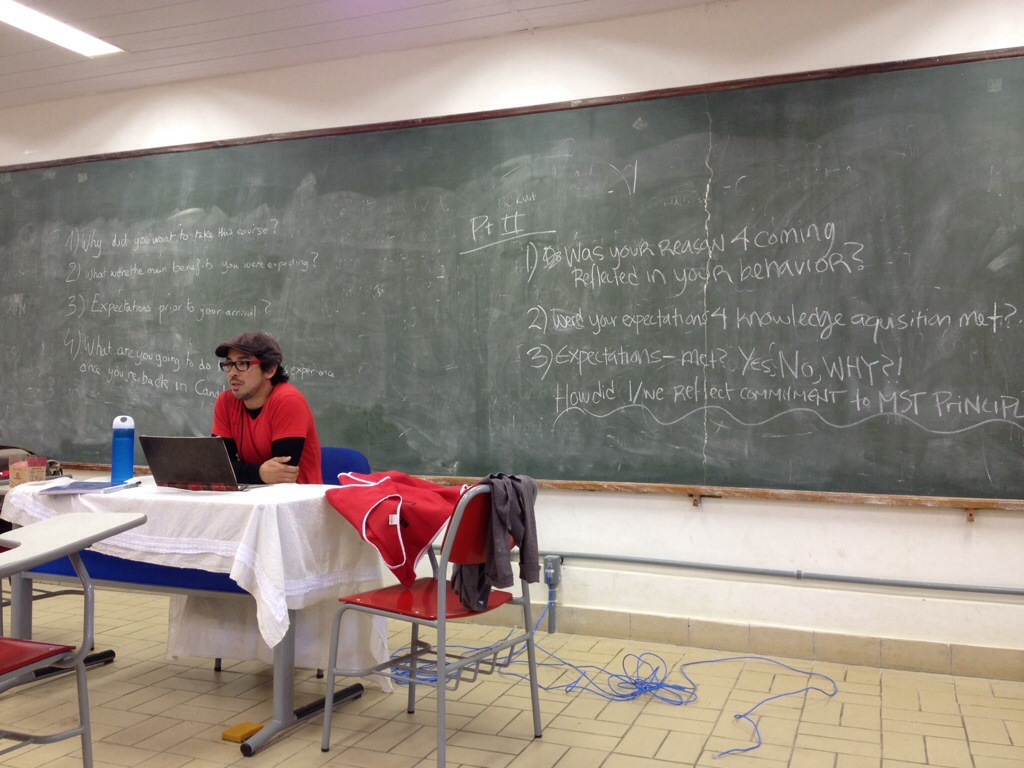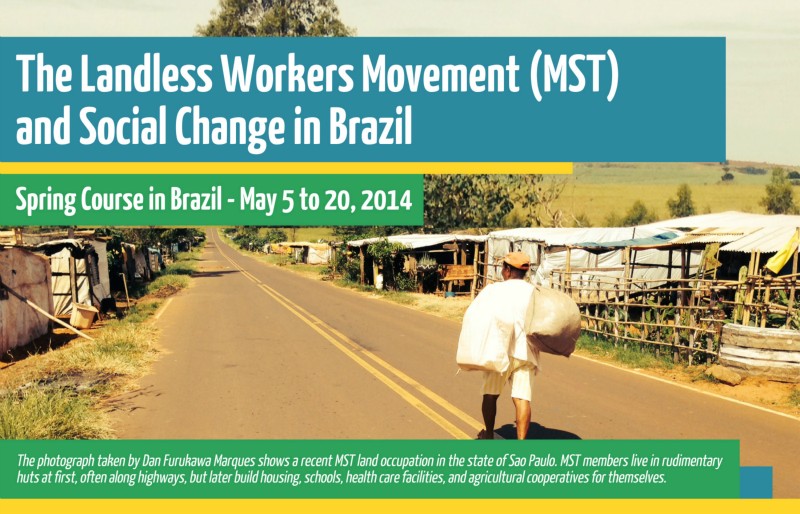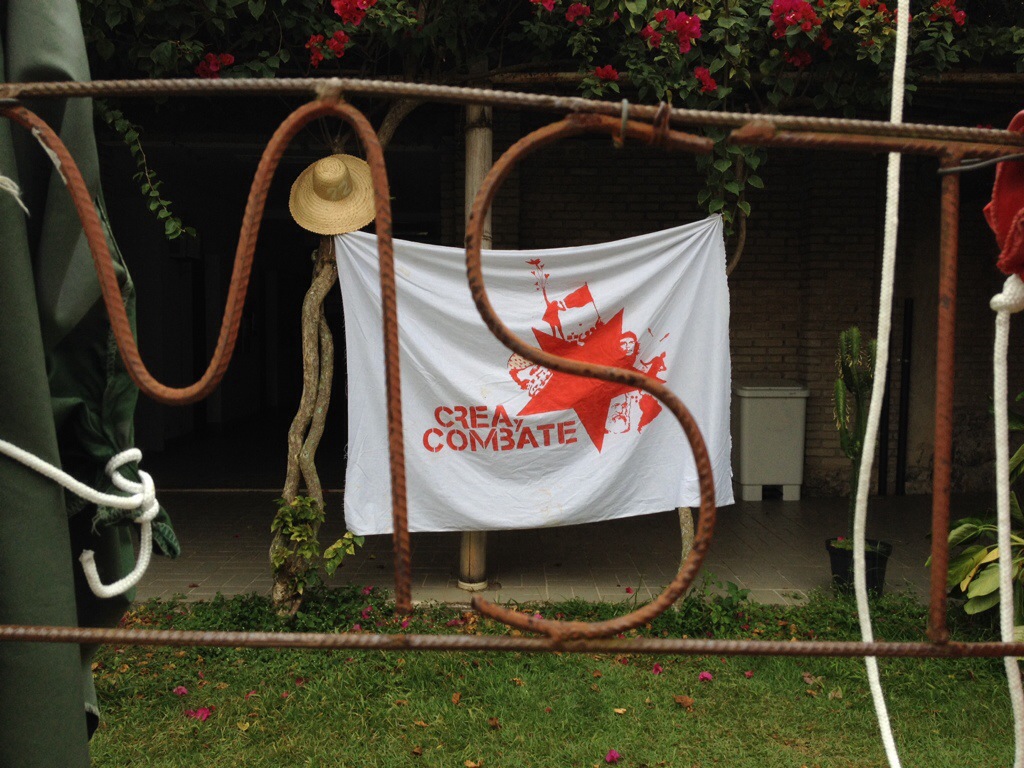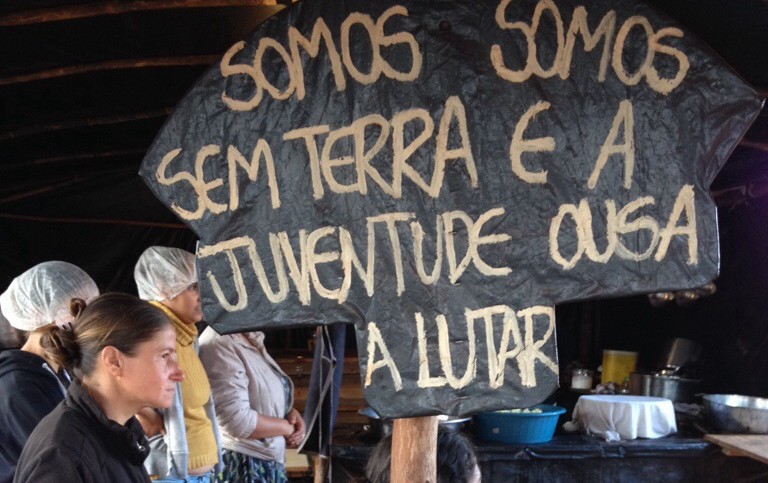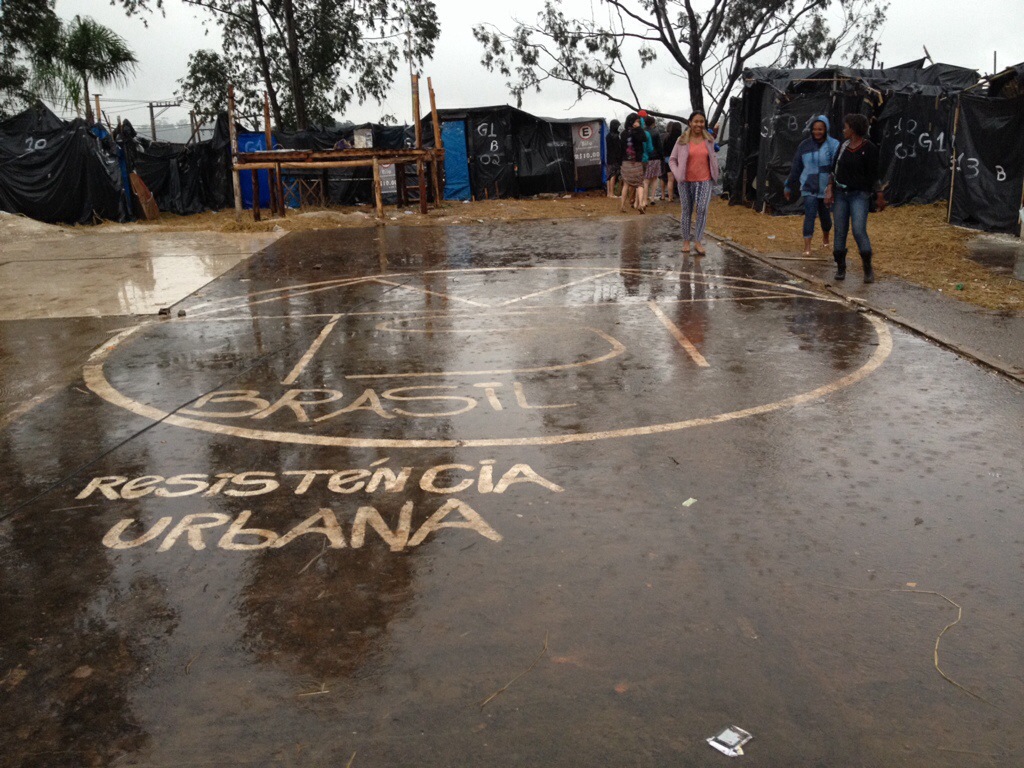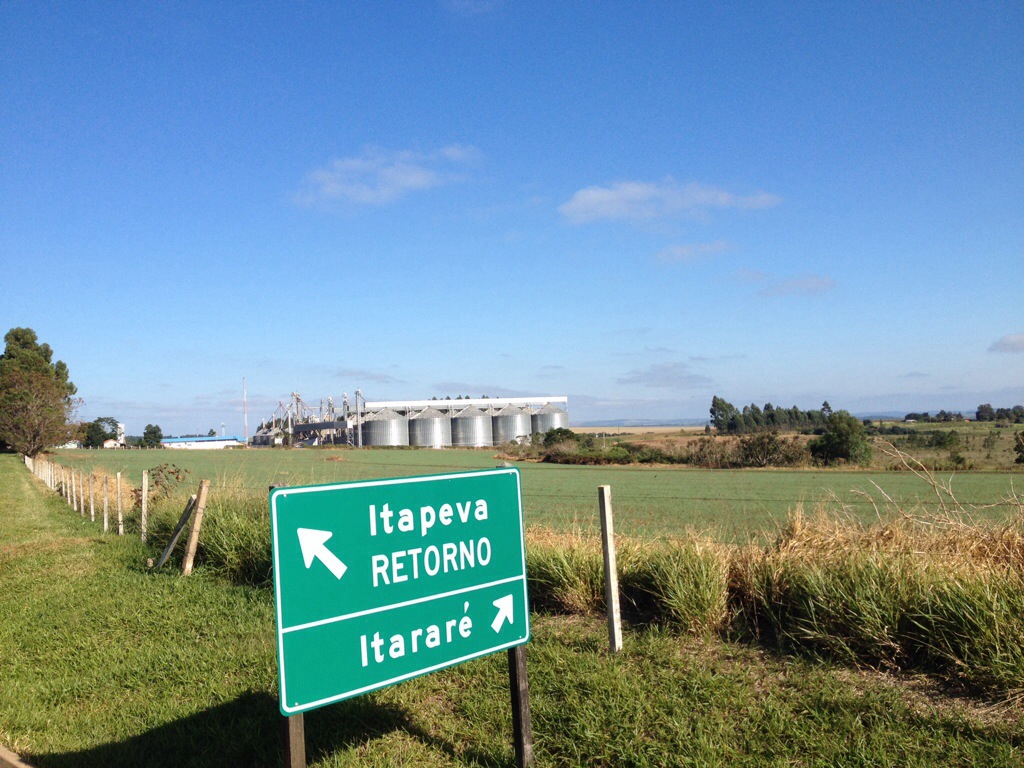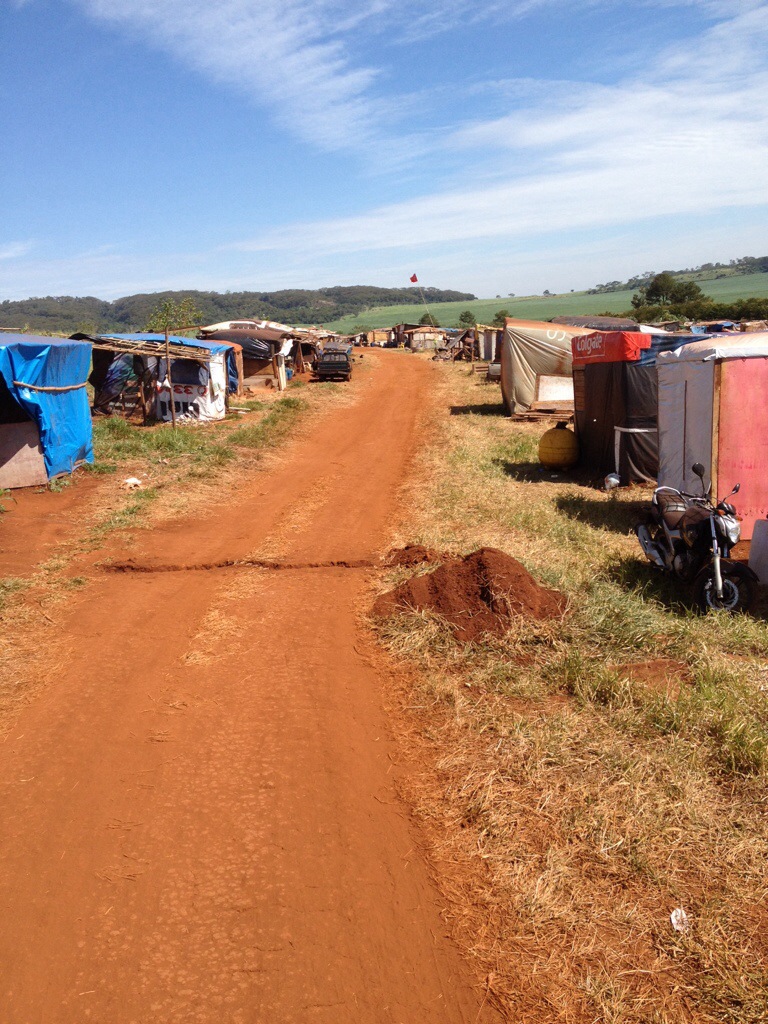“Comrades don’t leave, we’re about to start the mystique.”
Our little group of Canadian “Comrades” was headed to our dorms to receive our morning schedule after a delicious breakfast of organic honey, jelly, butter and freshly made white bread accompanied by hot coffee, or milk, and freshly picked oranges. For added flavour with the warm milk cocoa powder was provided. Everything (perhaps not the powder) was grown in the school or a cooperatives directed by the MST. Cooperatives are agricultural ventures managed collectively by MST members for the benefit of the community and its members. They are based on expropriated and divided land cultivated by former encamped families. In some settlements, once the land has been awarded the families begin building on their new piece of government land but work collective to produce the needed goods for the community. Nobody owns the land. The land is of the people “o povo.” The government gives them the right to stay and live there indefinitely until they stop producing. The honey and jelly came from one of many of these cooperatives in Brazil.

The school that is hosting us is called the Florestan Fernandes National School (ENFF). It is not recognized as a publicly funded school by the Brazilian Ministry of Education and thus cannot award formal certification of any kind. The school is funded, directed and managed by its MST members. They are the heart and soul of the school. Founded in 2005 it was named in honour of Florestan Fernandes a Brazilian educator who promoted collective work and was an arduous defender of quality, free public schooling for everyone. Organized as a type of university the school offers alternatives courses directed at Brazilian social movement groups—like the MST’s own activist (referred to as “militants”)— indigenous groups, and foreigners from Latin America and Africa.
The activities and courses offered by the school are organized to promote collaboration and solidarity by socializing or sharing of knowledge and work. The objective of the school is to qualify those fighting for social justice by helping them to make a critical analysis of their current social condition. In other words to critique the way the world is and has been governed by using a leftist critical framework of analysis.

Currently at the school a group of Latin American politically active youth leaders are undertaking a 45 day intensive course on being social movement leaders in Latin America. Their day starts with breakfast at 7am followed by the morning exercise at 7:45am where they state their purpose as leftist leaders through chants, songs, and readings. From 8 to 10am they are involved in various classes with a coffee break at 10am. Then from 10:15 to 12 they continue their discussions. Lunch is at noon, classes for two hours, coffee break at 4pm, classes, dinner at 7pm and class until 8:30p. The period between 8:30pm to 9 it is designated as study time. Lights out at 11. There is no alcohol allowed during the week and drug used is heavily discouraged thought not controlled. Most if not all of the participants follow these house rules. After all, this elite group of activists are preparing for active political participation when they return to their respective countries. They are here to learn and work, this is no vacation. They are trained in the act of speech giving and are taught critical thinking methods in order to analyze, question and provide solutions to the global social order of inequality and exploitation of the world’s working poor.

The girl who invited us to join with them in the morning exercise spoke to us in Spanish. The group is predominantly Spanish speaking. In the last day and a half here I have met indigenous Mexicans, Peruvians, Paraguayans, a fellow Guatemalan, Argentines and Brazilians from Bahia and Parana. This eclectic group is representative of the social movements springing up in Latin America and abroad consisting of radicalized socialist youth who question capitalism and neoliberal institutions as well as their failed promises to the world. They quote the growing inequality that capitalism has produce and call on each other to fight for social reform in their respective areas. They revere communists and socialist leaders like Karl Marx, Antonio Gramsci, and Che Guevara. Hugo Chavez, the former Venezuelan head of state is also remembered by the youth and his face is silhouetted on a shirt bearing the title, “Chavez came through here.”
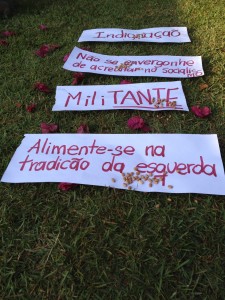
As Cassia, the MST’s international relations representative explains, “the main purpose of the school is political training.” The youth are expected to return to their respective countries and pass on the knowledge they gained here during their 45-day training. The “militantes” (pronounced milli-täncheese) are all members and leaders of various leftist social movements in their respective countries. They are nominated by their organization to participate on an extensive program that will prepare them to mobilize the masses back home.
Roberto Landaverry, my fellow Guatemalan tells me “we’re mostly leftist leaders: we have some Socialist, Communist and a couple Anarchist. All of us are here receiving political training.”
Politics is the walk and talk of the participants. One of the female leaders from Peru explained the difference between identifying each other as militants as compared to activist.
“Militants,” she says, “are politically active. They know the socialist philosophy and they are active in it. They organize and mobilize people to act.” She was adamant about being recognized as a militant and not simply an activist or consciously aware socialist youth. She talks to me in Spanish intermixed with Portuguese words. Like me she’s learning to gain a better control of the language without mixing Spanish and Portuguese terms. The school’s mentality of solidarity across social movements in Brazil and Latin America fosters intercultural learning.
I ask the youth next to her where he’s from and if he speaks Spanish, he responds and says, “I’m Brazilian but because I’m always together with my fellow Spanish comrades I was forced to learn.”
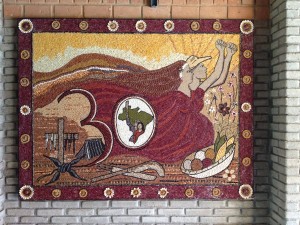
Learning from others is is part of the experience of attending the ENFF. Volunteer MST teachers and academic sympathizers offer courses on Political Philosophy, Leadership Training, Critical Analysis of Karl Marx philosophy and many other courses. Some courses are only offered to Brazilian nationalist youth leaders who are invited to attend the school, others are only offered to social movement leaders from abroad. The learning is free. The participant’s home organization is only required to pay for the flight of their member(s) and the school absorbs the cost of their lodging, food, transportation etc. While they do not get formal accreditation the school offers an alternative form of education unmatched in most Latin American countries. Foreigners cannot come and study here out of curiousity. We are the exception. Our participation is part of a global strategy of MST international relations.
As part of a more broad agenda to promote land and social reform in Brazil the MST and the school do not just provide political formation for its members and members of other social movements. In partnership with various Brazilian Universities the MST oversees 83 post secondary (university) courses, four graduate degrees directly connected with land reform and two specializations in social reform. The ENFF and the MST seek to enforce a national state sponsored program set up by the outgoing Lula administration that offers higher education to rural families and their children who have can prove that they live in rural settlements. These courses are only open to them if they meet the criteria set up by the Ministry of Education. The program is aimed at correcting hundreds of years of educational exclusion toward the rural poor.
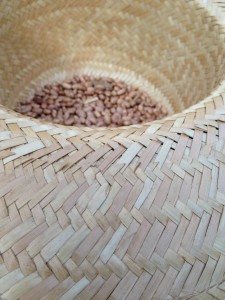
The school is unique. While there are other MST run schools this school is meant to be the principal school of political formation for many in continent. Our little group of Canadian students are met with intrigue but not distrust. We’re welcomed into the people’s conversations and we are often at the center of their coffee break dialogues or calls home. You don’t have to wait long before the word”Canadenses” or the Spanish equivalent “Canadienses” is spoken. In my case, a Peruvian named Richard has come to simply know me as “Guatemala.” I’m okay with that. The climate, the atmosphere and the cultural intermixing of political ideas feels just like Guatemala. They even have rice and beans for every meal. Yeah, I’m okay with that.


